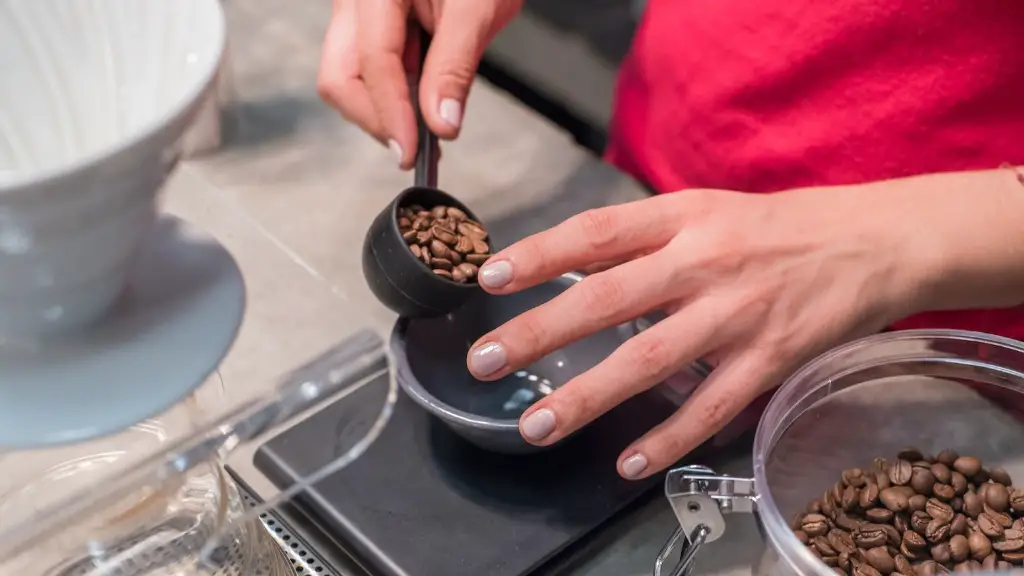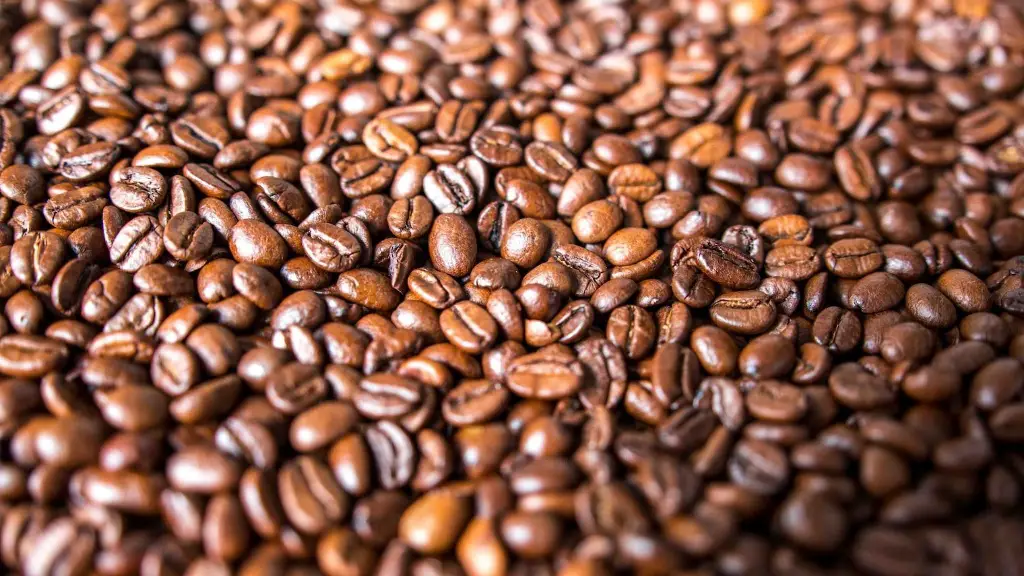Can You Have White Teeth and Drink Coffee
Coffee is a popular beverage enjoyed by many, but it can cause an array of dental issues to arise. Reports indicate that 13 million Americans over the age of 18 drink coffee each day, and 1 in 4 adults over the same age consume more than 4 cups daily. People tend to enjoy coffee for its flavour and aroma, and as a way to boost their energy levels or to stay focused throughout the day. However, this beverage contains certain compounds that can be detrimental to the enamel of your teeth.
When food or beverages that have a high content of acid are consumed, they will begin to wear away the enamel of your teeth, the outermost layer that protects your teeth from damage. This can lead to the teeth becoming stained and lose their whiteness. Coffee is one of these acidic beverages and can cause the teeth to take on a yellowish colouring as the staining compounds penetrate deeper into the dentin of the tooth. The natural sugars in coffee can also be a contributing factor for tooth decay, risking caries and other dental issues due to the fact that the coffee grounds act similarly to sandpaper on your teeth.
Nevertheless, it is possible to indulge in coffee without damaging your teeth, so long as the proper dental hygiene routine is followed and habits are developed to guard against staining. The best way to keep your teeth healthy and white is to brush them at least twice a day and get regular dental check-ups. Flossing and using mouthwash to remove food particles and compounds can also help to prevent enamel erosion. Additionally, drinking coffee through a straw can reduce the contact the beverage has with your teeth, ensuring they remain healthy and white.
Furthermore, reducing the amount of sugar added to your coffee can make a huge difference. Natural sugars present in the beverage are already damaging enough, but adding excessive amounts of processed sugar or sweeteners can lead to a higher risk of eroding the enamel on the surface of your teeth. It is also important to note that acidic beverages such as coffee should not be consumed regularly. If you choose to drink this beverage at least once a day, make sure that you rinse your mouth with water afterwards in order to remove any residue from the coffee that can further erode your teeth.
Lifestyle Adjustments to Prevent Tooth Staining
Strategically planned lifestyle adjustments can minimize the possibility of developing stained teeth from coffee consumption. Limiting your coffee intake and opting for decaf alternatives can help as well. You could choose to enjoy coffee as an occasional afternoon treat or part of a nightly ritual instead of consuming it multiple times a day. Having other beverages such as water and low-acid juices with your coffee can help to reduce acid levels in the mouth and counteract the potential enamel erosion.
Swap your morning coffee ritual with green or herbal teas that can have a protective effect on your teeth due to the tannins present in them. You could also substitute with nut milks or oat milk instead of cow’s milk or creamers. Consider having snacks with your coffee as well as this can help combat the erosion of your teeth. Eating hard crisp fruits, nuts and seeds can help to re-mineralize your enamel and keep it strong.
Dental hygiene plays a major role in keeping teeth white, so it is essential to stick to a consistent brushing routine in order to maintain healthy teeth. Schedule regular cleanings to remove tartar and plaque buildup, which can cause staining. Whitening treatments can also be done at dentist’s offices. Whitening toothpaste and rinses are also available over the counter and may be used in conjunction with your daily dental routine.
Pros and Cons of Whitening Agents
Many whitening treatments and products available in the market promise whiter teeth. However, research has found that many of these products can cause teeth sensitivity and weaken enamel on the teeth
Teeth whitening agents, if not used correctly and regularly, may contribute to enamel erosion and loss of protective layers which may further aggravate the risk of tooth decay and gum diseases. Whitening toothpastes and dental strips have been found to have no abrasive or bleaching effects and therefore can be used without increasing the risk of tooth and gum damage.
The majority of at-home and professional whitening products use hydrogen peroxide, which can be effective in reducing discoloration and lighten teeth. Various solutions and restorations including laser whitening, veneers and crowns can be used; however, there is a risk that the peroxide used in these processes may cause mouth irritation, or worse, immune reactions.
A dental professional can help to determine if any of these whitening procedures are suitable, few of these products may need to be done in a repeating cycle in order to maintain whiter teeth. As a result, consistent whitening treatments may be too costly and require frequent dentist visits.
Maintenance for Whiter Teeth
Ultimately, for those who choose to drink coffee, it is important to remember to maintain a daily oral hygiene routine, which includes brushing and flossing at least twice a day. Eating a balanced diet, high in calcium and low in sugar can help to strengthen your enamel to prevent erosion from regular coffee consumption. Additionally, limiting the amount of time your teeth are in contact with coffees, colas and other acidic beverages can significantly reduce their potential to stain.
Rinse your mouth with water after drinking coffee, to dilute the acidity, and reduce contact with your teeth. Consider drinking coffee through a straw instead of drinking it directly from the cup, it will minimize the chance of staining and allow you to make the most of your coffee experience.
Finally, delaying the onset of tooth staining can be accomplished through basic lifestyle adjustments. Like brushing twice a day, developing a consistent oral hygiene routine, eating a balanced diet that includes calcium rich foods, and using a straw when consuming coffee can all help to keep your teeth pearly white.
Costs of Treatments for Whiter Teeth
Treatments for whiter teeth come with a range of associated costs. In some cases, these costs may be worth it if the results are successful. Professional treatments carried out in a dental office can range from $500 to $1000 depending on the type of whitening chosen. Home whitening methods can be cheaper but may require a few additional visits for maintenance.
Home whitening products, such as whitening strips, whitening toothpastes, or whitening rinses, are some of the cheaper options. However, it is important to remember that they are not as effective as the treatments that can be performed in a dental office. Furthermore, it may take longer to achieve the desired results and some of the results may not be long-lasting.
Another option to brighten teeth is to use over-the-counter bleaching products. These products are also not as effective as professional treatments and come with a higher risk of experiencing side effects, such as irritation to the gums. Furthermore, over-the-counter products can be expensive, with some costing up to $100.
Dietary Habits for Whiter Teeth
Eating the right foods for optimal oral health is a must for whiter teeth. The enamel of your teeth can be damaged and worn away by highly acidic foods and drinks, such as citrus fruits, vinegar, and of course, coffee. Additionally, sugar-rich foods can contribute to cavities and tooth decay.
To increase your chances of having white teeth and reduce potential enamel erosion, cut back on sugary and acidic foods and drinks, replace them with calcium-rich foods such as cheeses, green leafy vegetables and yogurt, and keep your teeth free from plaque and bacteria by practicing good oral hygiene.
People can correct and maintain the whiteness of their teeth through the consistency of their lifestyle and dietary habits. It is important to remember that not all whitening treatments or products are safe or effective, so be sure to consult a dental professional to obtain advice on optimal teeth whitening methods.
Oral Hygiene for Whiter Teeth
Good oral hygiene is essential for whiter teeth and maintaining a proper dental hygiene routine can help to prevent enamel erosion and tooth decay. Brush two to three times daily, floss, and use an antibacterial mouth rinse to clean between your teeth and reduce bacteria in your mouth. It is also important to schedule regular visits to the dentist for check-ups and cleanings for a thorough oral exam.
Limiting acidic foods and drinks and eliminating hard-to-clean snacks such as popcorn and chips, can help to avoid possible enamel damage that could further contribute to discoloration of the teeth. For example, the acids present in juices and sodas can erode enamel if consumed too often.
Finally, it is important to remember that following a dental hygiene routine alone is not enough to maintain white teeth. Whitening treatments may be required to remove deep teeth staining caused by coffee, tea, and tobacco. If you choose to receive a whitening treatment, discuss your options with your dentist in order to ensure you are receiving the safest and most effective treatment for whiter teeth.





